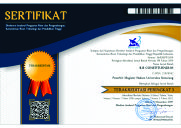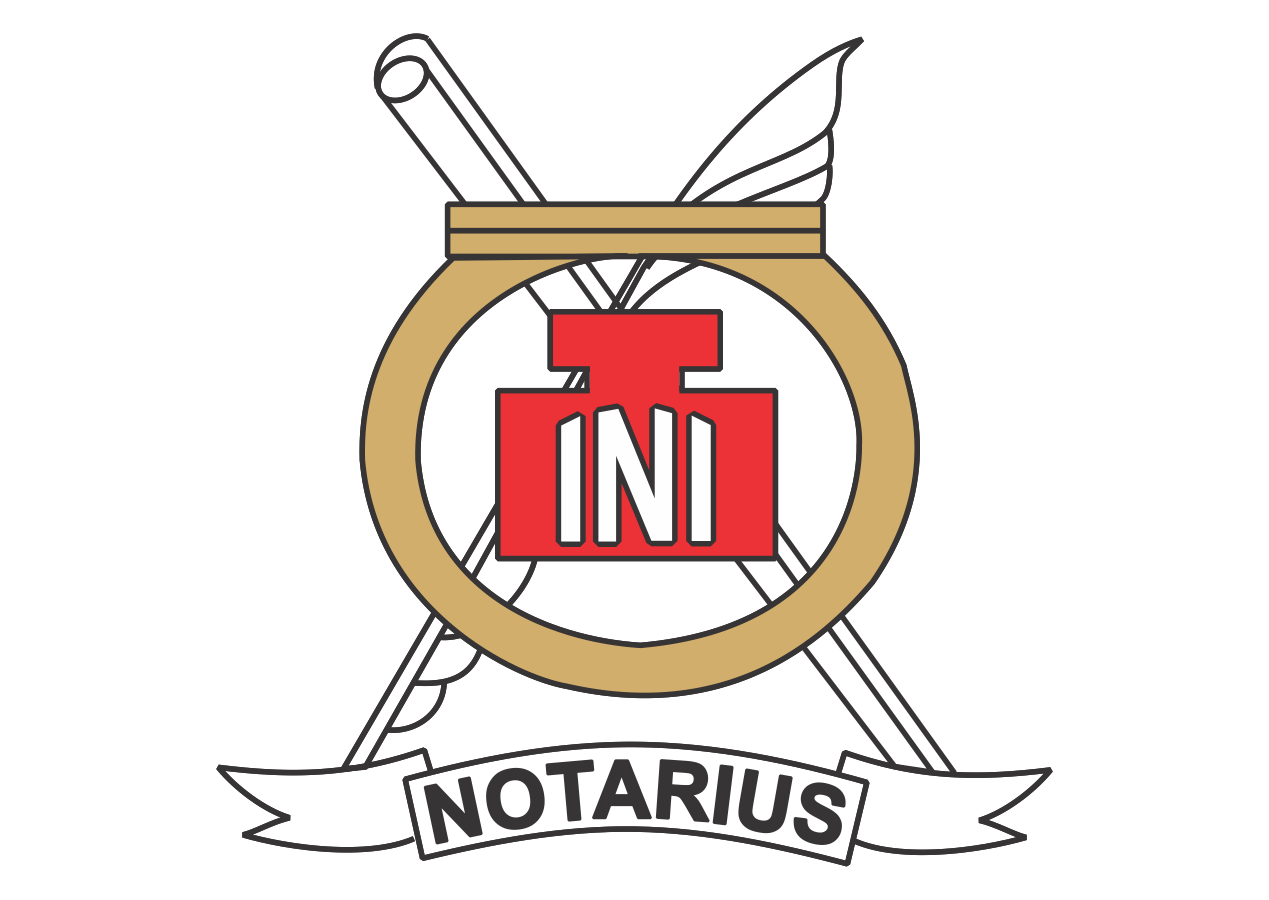- Focus and Scope
- Section Policies
- Peer Review Process
- Publication Frequency
- Open Access Policy
- Archiving
- Publication Ethics And Malpratice Statement
- Abstracting And Indexing
- History
- Plagiarism Policy
Focus and Scope
The aims of this journal is to provide a venue for academicians, researchers and practitioners for publishing the original research articles or review articles. The scope of the articles published in this journal deal with a broad range of topics, including:
- Criminal Law,
- Civil Law,
- Constitutional Law,
- International Law,
- Administrative Law,
- Islamic Law,
- Business Law,
- Medical Law,
- Environmental Law,
- Legal Philosophy
Section Policies
Articles
Peer Review Process
Submitted papers are evaluated by double blind peer review for contribution, originality and relevance. The Editor shall inform you of the results of the review as soon as possible, hopefully in 2 months. Please notice that because of the great number of submissions that JIC has received during the last few months the duration of the review process can be up to 4 months.
Publication Frequency
Jurnal Ius Constituendum (JIC) is scheduled for publication in February, June and October (3 issue a year).
Open Access Policy
This journal is an open access journal which means that all content is freely available without charge to the user or his/her institution. Users are allowed to read, download, copy, distribute, print, search, or link to the full texts of the articles, or use them for any other lawful purpose, without asking prior permission from the publisher or the author.
Archiving
This journal utilizes the LOCKSS system to create a distributed archiving system among participating libraries and permits those libraries to create permanent archives of the journal for purposes of preservation and restoration. More...
Publication Ethics And Malpratice Statement
Journal Ius Constituendumis a peer-reviewed journal published by Magister Hukum Universitas Semarang. The journal is committed to upholding the highest standards of publication ethics and takes all possible measures against any publication malpractices. This statement clarifies the ethical behaviour of all parties involved in the act of publishing an article in this journal as well as allegations of research misconduct, including the author, the chief editor, the Editorial Board, the peer-reviewer and the publisher. This statement is based on the COPE Best Practice Guidelines for Journal Editors.
Ethical Guideline for Journal Publication
The publication of an article in a peer-reviewed Ius Constituendum is an essential building block in the development of a coherent and respected network of knowledge. It is a direct reflection of the quality of the work of the authors and the institutions that support them. Peer-reviewed articles support and embody the scientific method. It is, therefore, important to agree upon standards of expected ethical behavior for all parties involved in the act of publishing: the author, the journal editor, the peer reviewer, the publisher, and the society.
Magister Hukum Universitas Semarang as the publisher of Ius Contituendum takes its duties of guardianship over all stages of publishing extremely seriously, and we recognize our ethical and other responsibilities. We are committed to ensuring that advertising, reprint or other commercial revenue has no impact or influence on editorial decisions. Editorial Board will assist in communications with other journals and/or publishers where this is useful and necessary.
Allegations of Research Misconduct
Research misconduct means fabrication, falsification, citation manipulation, or plagiarism in producing, performing, or reviewing research and writing an article by authors, or in reporting research results. When authors are found to have been involved with research misconduct or other serious irregularities involving articles that have been published in scientific journals, Editors have a responsibility to ensure the accuracy and integrity of the scientific record.
In cases of suspected misconduct, the Editors and Editorial Board will use the best practices of COPE to assist them to resolve the complaint and address the misconduct fairly. This will include an investigation of the allegation by the Editors. A submitted manuscript that is found to contain such misconduct will be rejected. In cases where a published paper is found to contain such misconduct, a retraction can be published and will be linked to the original article.
The first step involves determining the validity of the allegation and an assessment of whether the allegation is consistent with the definition of research misconduct. This initial step also involves determining whether the individuals alleging misconduct have relevant conflicts of interest.
If scientific misconduct or the presence of other substantial research irregularities is a possibility, the allegations are shared with the corresponding author, who, on behalf of all of the co-authors, is requested to provide a detailed response. After the response is received and evaluated, additional review and involvement of experts (such as statistical reviewers) may be obtained. For cases in which it is unlikely that misconduct has occurred, clarifications, additional analyses, or both, published as letters to the editor, and often including a correction notice and correction to the published article are sufficient.
Institutions are expected to conduct an appropriate and thorough investigation of allegations of scientific misconduct. Ultimately, authors, journals, and institutions have an important obligation to ensure the accuracy of the scientific record. By responding appropriately to concerns about scientific misconduct, and taking necessary actions based on evaluation of these concerns, such as corrections, retractions with replacement, and retractions, Ius Constituendum will continue to fulfill the responsibilities of ensuring the validity and integrity of the scientific record.
Publication decisions
The editor of the Ius Constituendum journal is responsible for deciding which of the articles submitted to the journal should be published. The validation of the work in question and its importance to researchers and readers must always drive such decisions. The editors may be guided by the policies of the journal's editorial board and constrained by such legal requirements as shall then be in force regarding libel, copyright infringement and plagiarism. The editors may confer with other editors or reviewers in making this decision.
Complaints and Appeals
Ius Constituendum will have a clear procedure for handling complaints against the journal, Editorial Staff, Editorial Board or Publisher. The complaints will be clarified to a respected person with respect to the case of complaint. The scope of complaints includes anything related to the journal business process, i.e. editorial process, found citation manipulation, unfair editor/reviewer, peer-review manipulation, etc. The complaint cases will be processed according to COPE guideline. The complaint cases should be sent by email to: iusconstituendum@usm.ac.id
Fair play
An editor at any time evaluate manuscripts for their intellectual content without regard to race, gender, sexual orientation, religious belief, ethnic origin, citizenship, or political philosophy of the authors.
Confidentiality
The editor and any editorial staff must not disclose any information about a submitted manuscript to anyone other than the corresponding author, reviewers, potential reviewers, other editorial advisers, and the publisher, as appropriate.
Disclosure and conflicts of interest
Unpublished materials disclosed in a submitted manuscript must not be used in an editor's own research without the express written consent of the author.
Post-Publication Discussions and Corrections
Ius Constituendum accepts discussion and corrections on published articles by reader. In case the reader giving discussions and corrections toward a published article, the reader can contact by email to Editor in Chief by explaining the discussions and corrections. If accepted (by Editor in Chief), the discussions and correction will be published in next issue as Letter to Editor. Respected Authors can reply/answer the discussions and corrections from the reader by sending the reply to Editor in Chief. Therefore, Editors may publish the answer as Reply to Letter to Editor.
Abstracting And Indexing
Jurnal Ius Constituendum is indexed at : Directory of Open Access Journals (DOAJ), Google Scholar, Garda Rujukan Digital (GARUDA), Indonesian Scientific Journal Database (ISJD),International Standard Serial Number (ISSN), Indonesia Onesearch by PERPUSNAS, Bielefeld Academic Search Engine (BASE), Dimensions, Moraref, Science and Technology Index (SINTA)
History
Jurnal Ius Constituendum periodic journal published three a year in February, June and October (3 issues a year), has been indexed SINTA 3 (Accredited by the Directorate General of Research And Development of the Ministry of Research, Technology, and Higher Education of the Republic of Indonesia Number 79/E/ KPT/2023). Jurnal Ius Constituendum starting in December 2022 has collaborated on journal publication with the professional organization Ikatan Notaris Indonesia. Jurnal Ius Constituendum registered as a member of Crossref system with Digital Object Identifier (DOI) prefix 10.26623. All articles will have DOI number. Jurnal Ius Constituendum since Volume 8 2023 published 3 times a year (Pebruary, June and October).
Plagiarism Policy
- Plagiarism and self-plagiarism are not allowed;
- The authors should ensure that they have written entirely original works, and if the authors have used the work and/or words of others that this has been appropriately cited or quoted;
- An author should not in general publish manuscripts describing essentially the same research in more than one journal or primary publication. Submitting the same manuscript to more than one journal concurrently constitutes unethical publishing behavior and is unacceptable;
- Proper acknowledgment of the work of others must always be given. Authors should cite publications that have been influential in determining the nature of the reported work.
Working Process:
- Editorial Team checking manuscript on offline and online database manually (checking proper citation and quotation);
- Editorial Team checking manuscript by using Turnitin app. If it is found plagiarism indication (more than 25%), the board will reject the manuscript immediately.

















